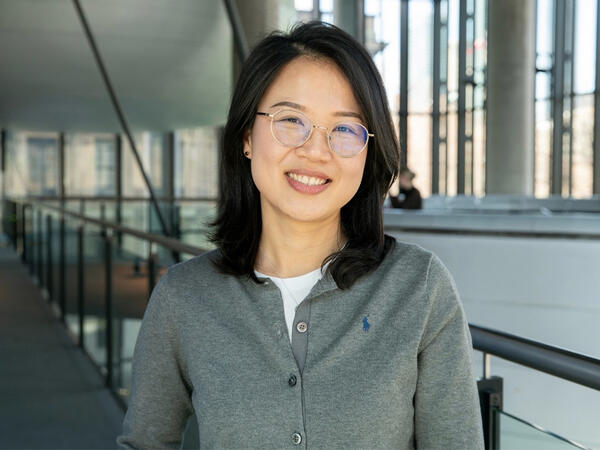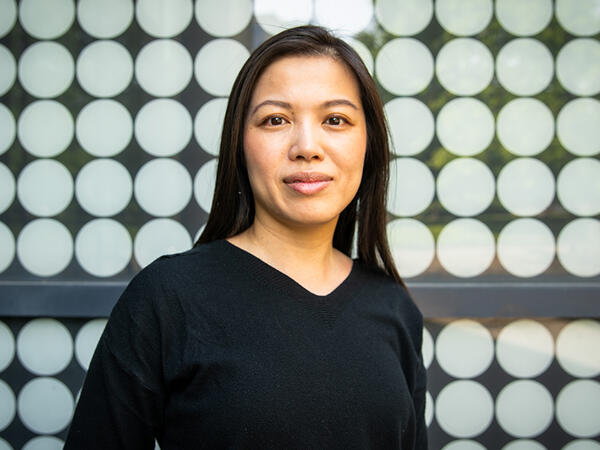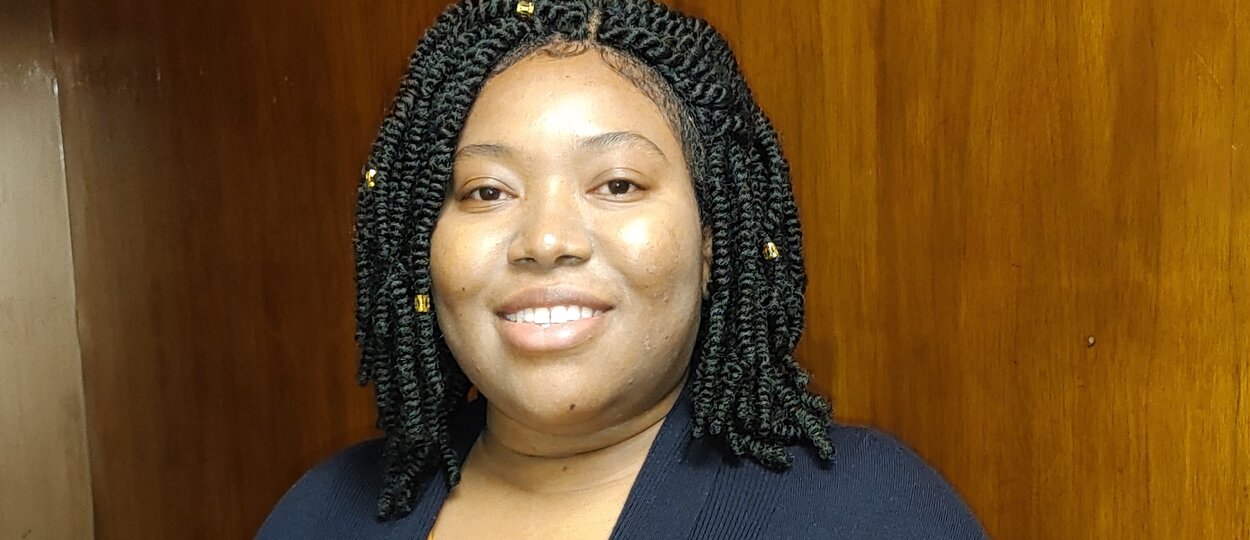“As members of the BIPOC community, we still have a long way to go. We need to continue breaking barriers and be a part of the change that society needs.”
Sana-Kay Whyte-Allman has always felt passionate about improving human lives and society broadly.
As a PhD candidate in Professor Reina Bendayan’s lab at the Leslie Dan Faculty of Pharmacy, Whyte’s research has focused on the pharmacological treatment of HIV infection in the brain and testis. Having recently completed her PhD thesis, Whyte is on-track to graduate this June and planning the next step in her career.
“I am driven and I aspire to do work that can directly impact access to the best treatment and healthcare for those in need. I hope to pursue a career in the pharmaceutical industry and grow to become a change agent and leader in the field,” said Whyte.
Whyte shared some of her reflections with the LDFP Communications Office ahead of February 11, the International Day of Women and Girls in Science. Check out her Q&A below, including challenges Whyte has overcame throughout her research, how becoming a mother during her PhD studies taught her resilience and determination, and her advice to women in the BIOPC community who are considering pursuing pharmaceutical sciences.
What is your academic background and how does it complement pharmaceutical sciences research?
I completed my B.Sc. degree in Chemistry with a minor in Biology at the Johnson C. Smith University in Charlotte, North Carolina. During my undergraduate studies, I had the opportunity to participate in several research programs, which sparked my overall interest in studying diseases and therapeutic drug targets.
I gained experience in various research areas from neuromuscular studies to medicinal chemistry which allowed me to transition into pharmaceutical science research at the graduate level. I then pursued my PhD under the supervision of Dr. Reina Bendayan, where I obtained invaluable experience and extensive training in molecular pharmacology research.
I recently completed my PhD thesis work in which I studied the role and regulation of biological membrane-associated drug transport proteins in the testis and T-lymphocytes, in the context of human immunodeficiency virus (HIV) pharmacotherapy and immunology.
What led you to Professor Bendayan’s research group?
As an international student who grew up with limited resources in Jamaica, a small developing country, I have always been passionate about being a part of efforts to improve human lives and contribute to the betterment of our society at large.
As one of Canada’s top institution, I sought out pharmaceutical sciences research opportunities at our Faculty and found that Dr. Bendayan’s work aligned well with my passion and interests. Dr. Bendayan’s research focuses on the pharmacological treatment of HIV infection in the brain and testis. I was excited about the opportunity to perform HIV research in her laboratory, specifically to carry out studies that could enhance the efficacy of antiretroviral drugs used to treat the infection.
I joined her research team in 2014 as a direct-entry PhD student and a recipient of the Connaught Scholarship for International Doctoral students.
What are some of the challenges you’ve had to overcome within your research?
Directly emerging into HIV pharmacology research at the graduate level was challenging since I was coming directly from a background in general chemistry. I had to learn a lot, and learn quickly, in order to propose and carry out my research projects. I also had the support of other student researchers and research associate in our group who helped to ease the transition process.
Other challenges involved technical problems and limitations associated with my experimental work, however, working through these challenges helped me to develop the skill set needed to successfully obtain my PhD. As researchers, we are always challenged when performing complex research, and I was especially fortunate to conduct preclinical studies with rarely accessible human tissues.
In addition, becoming a mother during my PhD studies taught me resilience and determination. This, in return, also strengthened me to overcome some of the challenges that arose.
What impact do you hope your research has on society broadly?
While HIV treatment has advanced over the years to control the infection and improve quality of life, individuals living with the virus are still faced with persistent infection at cellular sites where anti-HIV drugs may not penetrate effectively.
In this context, one of our research goals in the laboratory is to elucidate the role and regulation of several membrane transport proteins that are involved in the disposition of anti-HIV drugs at blood-tissue barriers and cellular sites. We have identified the expression and activity, as well as molecular pathways regulating these transport proteins, and their potential contribution to suboptimal drug penetration in HIV target tissues and immune cells such as the brain, testis, T-lymphocytes and myeloid cells.
We hope that this research can increase knowledge broadly and provide a basis for the development of more effective therapeutic approaches to treat and possibly cure this infection which remains a global burden.
Can you share any future career goals/aspirations?
I am driven and I aspire to do work that can directly impact access to the best treatment and healthcare for those in need. I hope to pursue a career in the pharmaceutical industry, and I am currently seeking opportunities where I can apply my skills and experiences, as well as grow to become a change agent and leader in the field.
What would you say to women and/or those in the BIOPC community that are considering pursuing education in pharmacy/pharmaceutical sciences?
Nowadays, women are playing important roles advancing pharmaceutical sciences research and leading pharmaceutical companies, some of them from our own faculty. Women are also being recognized and celebrated for their contributions to the field.
Recently, Dr. Bendayan and I were invited to contribute to a special themed issue with the American Association of Pharmaceutical Scientists Journal (AAPS J) to highlight and celebrate the work of women in pharmaceutical sciences.
However, as members of the BIPOC community, we still have a long way to go. Therefore, we need to continue breaking barriers and be a part of the change that society needs, and the Leslie Dan Faculty of Pharmacy is a well renowned and internationally recognized institution where you can start to accomplish these goals.
More News
Image

Grad to Watch: Jackie Fule Liu’s research focuses on better outcomes for diabetes patients
A recent PhD graduate, Jackie Fule Liu combines hands-on skill and big-picture thinking to help tackle diabetes care challenges.
Read More
Image

U of T community members recognized with Order of Canada
Congratulations to Dean Emeritus and Professor K. Wayne Hindmarsh on his appointment.
Read More
Image

Welcoming Ivy Lam as Academic Lead in Climate, Health & Sustainable Care
Assistant Professor Lam will guide the Leslie Dan Faculty of Pharmacy's efforts to embed environmental sustainability across the Faculty.
Read More
